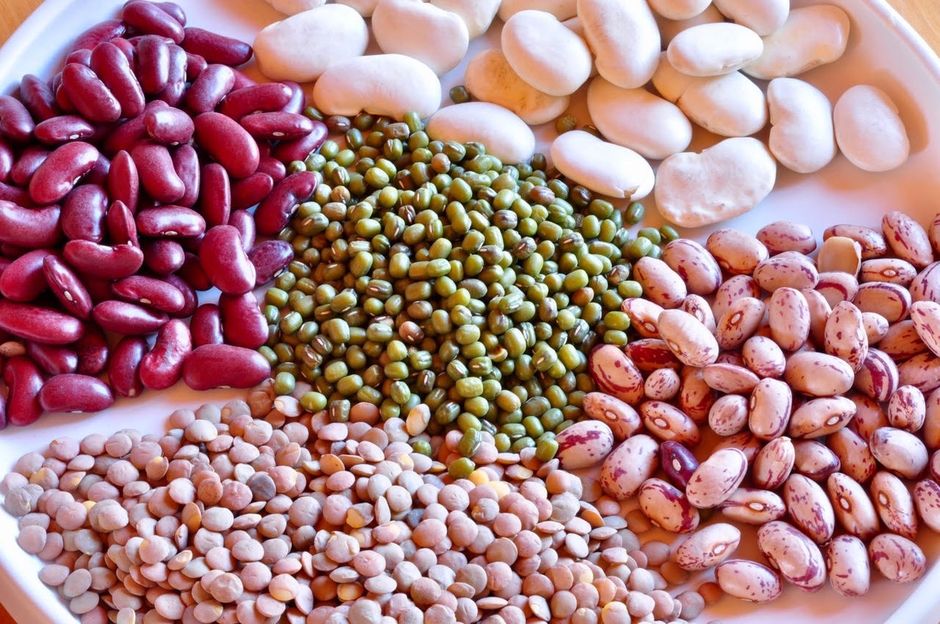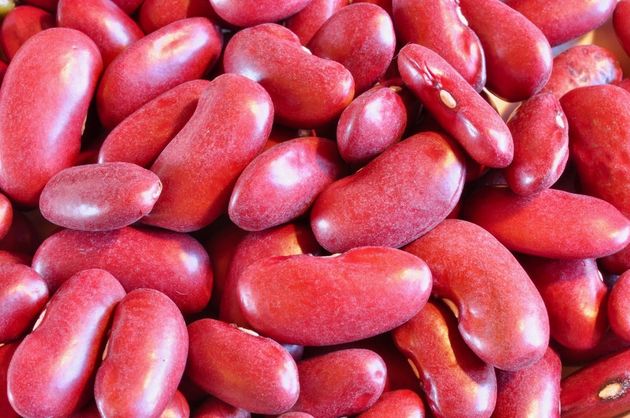The regard in which they were held can even be seen in some of the names that were given by the Romans: Fabius comes from the Latin word Faba, meaning bean: Cicero comes from cicer, meaning chickpea.
 Photo: Antonio Cruz
Photo: Antonio Cruz
Better a dish of vegetables with love
than a fattened calf with hatred.
(Pr. 15:17)
The Hebrew words zeroim and zereonim mean “seeds” in general and appear is many different Bible passages. These terms were translated in the Septuagint as ospria and spérmata respectively, while the term used in the Vulgate is leguminae.
In fact, pulses are the seeds contained in leguminous plants (the Fabaceae family), such as chickpeas, beans, peas and lentils, etc. The Bible refers to pulses as the food with which God blessed Noah and his sons after the flood (Genesis 9 v 3).
It was common to have vegetable gardens where these vegetables were grown (1 Kings 21 v 2). Although they were regarded as a humble food source compared with fattened calf (Pr. 15 v 17), a diet of pulses was known to be much healthier than one based on meat, which was why it was chosen by Daniel and his companions when they were deported to Babylon. It was perhaps the first vegan diet recorded in history. Besides, the food served in pagan courts had been sacrificed to idols (Dt 32 v 38) and thus were forbidden by the Mosaic law (Lv. 3 v 17).
Beans also feature in the New Testament as the food preferred by spiritually weak believers, who did not feel free to eat everything on account of their religious scruples (Ro. 14 v 2). Paul mentions this as a warning against judging our fellow-believers.
Leguminous vegetables and cereals were the first type of crops to be grown by humankind in the Near East some ten thousand years ago. Fossilised seeds of wheat, barley, lentils and peas have been found from this period, which indicates that they were the basis of agricultural activity at that time, while beans began to be grown later, about the 4th millennium before Christ.
In Genesis we find the story of Esau who sold his birthright for a plate of lentils (Gn 25 v 34). Likewise, this food source was greatly appreciated by the Egyptians and the Romans.
At the time of the Emperor Caligula, an obelisk is said to have been transported from Egypt to Rome along with 840 tonnes of lentils.
 Photo: Antonio Cruz
Photo: Antonio Cruz[photo_footer] Photo: Antonio Cruz [/photo_footer] Some ancient people groups not only grew pulses but actually venerated them as if they were a sort of treasure. Seeds of this kind have been found in the tombs of Egyptian Pharaohs and of Aztec kings alongside the treasures that were buried with them. The Greeks and the Romans offered them to their respective deities. The regard in which they were held can even be seen in some of the names that were given by the Romans: Fabius comes from the Latin word Faba, meaning bean: Cicero comes from cicer, meaning chickpea, Lentulus from lenticula which means lentil, and Pisus is from the Latin word pisum, or pea.
Pulses are a homogeneous alimentary group which have in common the fact that they develop inside straight, fleshy sheaths. These sheaths are characterised by the spongy, velvety whitish interior surrounding the seeds, the size of which varies depending on the species. The largest pulses in the world is wrapped in sheaths which can be up to two metres long, with their dark brown, heart-shaped seeds some 6 cm in diameter and 2 cm thick. It is the plant known as the “monkey-ladder” (Entada gigas), a climbing plant which grows in the tropical forests of Central America and Africa.
Broadly speaking, pulses are rich in nutrients, as 20% to 25% of their weight consists of proteins. This percentage increases in the case of peanuts and soy beans, with up to 38%. Their carbohydrate content amounts to 60%, and between 11% and 25% fibre, as well as important micro-nutrients such as iron, copper, nickel, carotenoids, vitamin B1, niacin or folic acid. Pulses have a very low fat content, and help to lower the level of cholesterol in the blood. For this reason, though for a long time they were regarded as “meat for the poor”, by contrast with the “real meat” that luxuriously graced the tables of the wealthy, there is no doubt that pulses remain an excellent food-source.
The text from the book of Proverbs with which this article begins states “better a dish of vegetables (pulses) with love than a fattened calf with hatred” (15 v 17). Someone might reply, however, that the best option would be a fattened calf where there is love. But that reply would miss the point. The author wants the reader to choose between love and good food, between the emotions and the appetites, between the spiritual and the material. Of course, love will always be more important, because only love is capable of covering all our human flaws and failings (Proverbs 10 v 12; 1 Peter 4 v 8).

Las opiniones vertidas por nuestros colaboradores se realizan a nivel personal, pudiendo coincidir o no con la postura de la dirección de Protestante Digital.
Si quieres comentar o